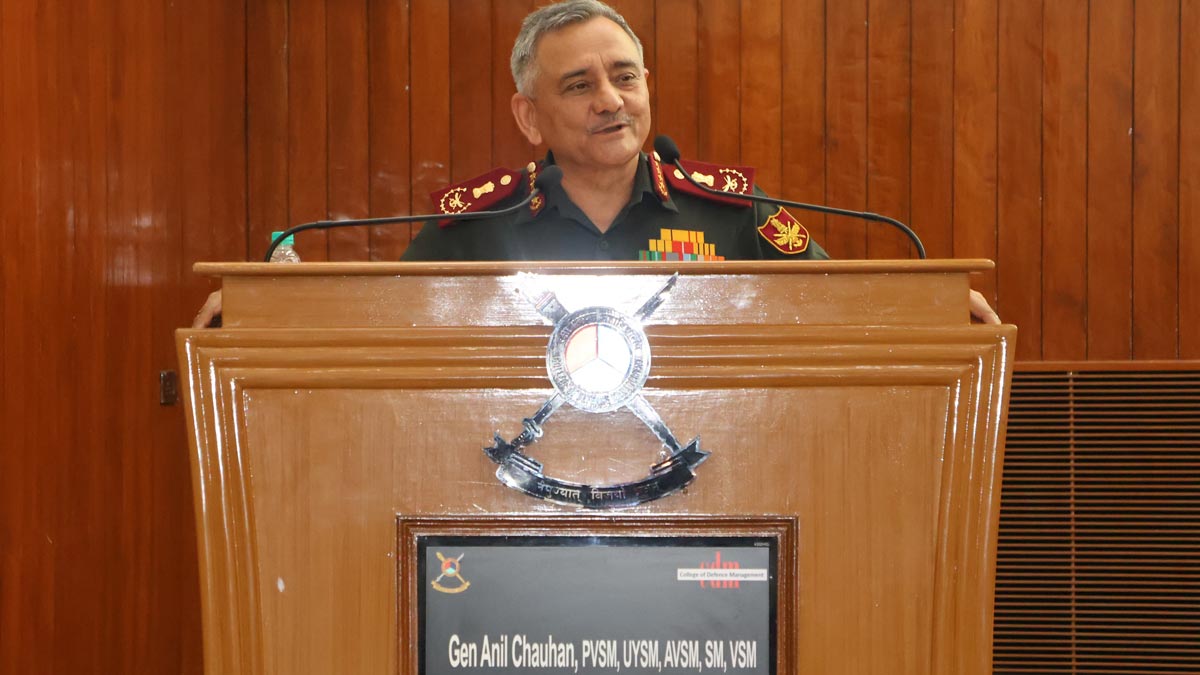Strategic disengagement with Pakistan a considered response, says CDS Gen Anil Chauhan

Strongly rejecting that there is ‘strategic aimlessness’ in India’s relationship with Pakistan, the Chief of Defence Staff (CDS) General Anil Chauhan noted that “strategic disengagement is itself a considered response”.
“At Independence, Pakistan was ahead by many metrics; today, India leads in GDP, social harmony, and development. That progress reflects a long-term strategy. Diplomatic outreach has occurred—such as the PM’s 2014 invitation to Nawaz Sharif—but reciprocation is lacking,” the CDS is reported to have said during an interaction with the academia and think tanks from various countries.
The CDS is in Singapore to attend the Shangri-La Dialogue, named after the Shangri-La Hotel venue in Singapore, since 2002. The three-day-long event is hosted by the International Institute for Strategic Studies (IISS) and sees leaders in attendance from all across the world.
The CDS’ position is considered significant as it is the first reflection of the Indian approach to Pakistan especially after the recent short and intense battle between the two militaries.
Currently, the two militaries are upholding a pause in firing without terming it a ‘ceasefire’ with Indian leaders insisting that the operation is still on.
One significant success of the Indian operation, codenamed ‘Sindoor’ was the seamless integration of a range of platforms, weapons and systems of American, Russian, French and Israeli origin to launch offensives and counter-offensives against Pakistan. Gen Chauhan is reported to have said, “Network-centric warfare—where integration and automation across domains are critical—is becoming the new norm.”
On China coming to Pakistan’s aid during the conflict, the CDS said while Islamabad may have leveraged Chinese commercial satellite imagery, there is no proof of real-time targeting support. “India relied on its own capabilities, while adversaries may have sought help from allies; but real-time coordination remains unconfirmed,” he said.
India also relied on indigenous systems like the Akash air defence system, “achieving success through effective system networking, integrating both domestic and foreign radars into a cohesive defence structure”.
Pointing out to an adverse impact of automation and robotics application, the CDS said, “Reducing the human cost of war may increase the likelihood of conflict escalation. When fewer lives are at risk, decision-makers may act more aggressively. This shift presents various ethical and strategic challenges.”
Defence